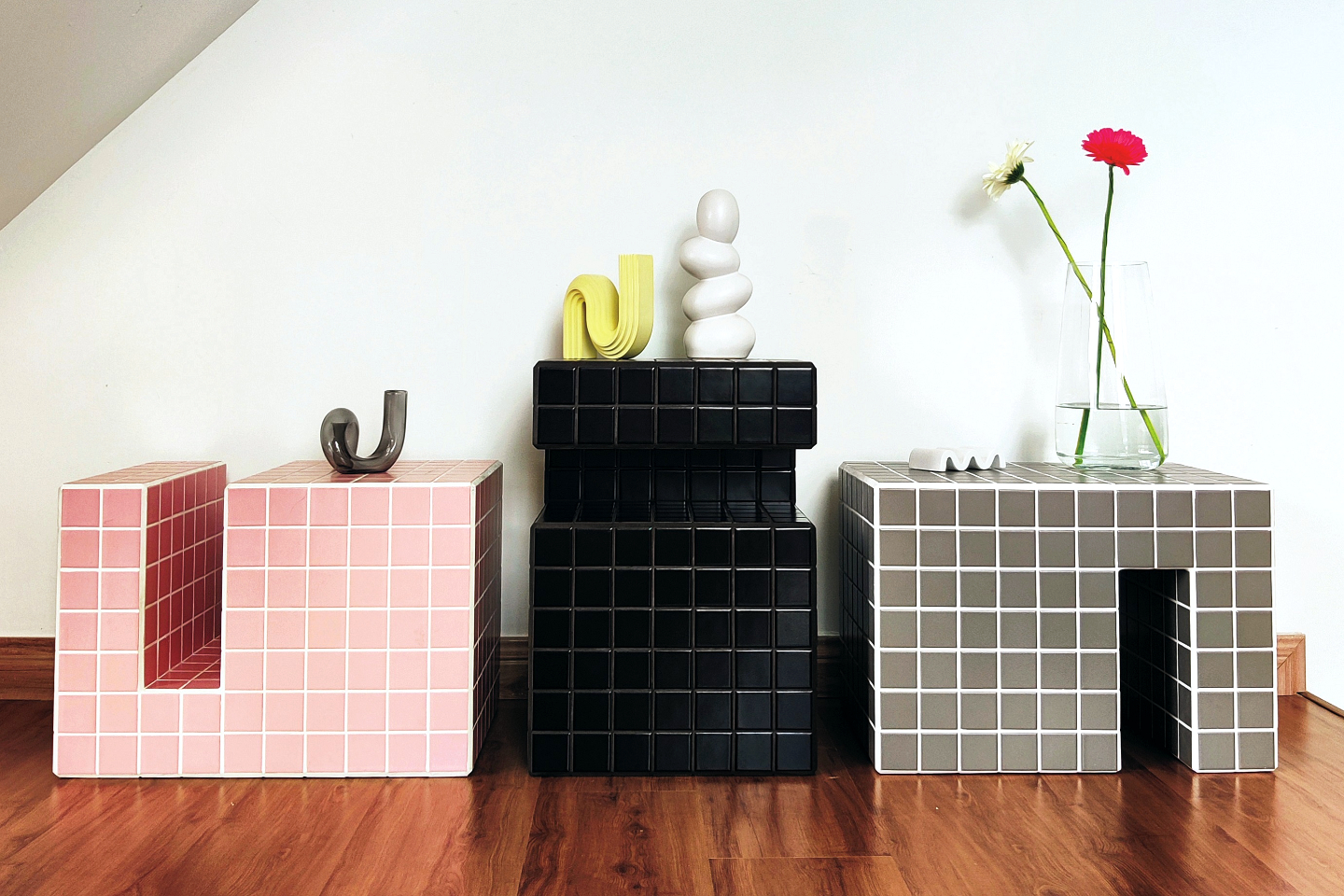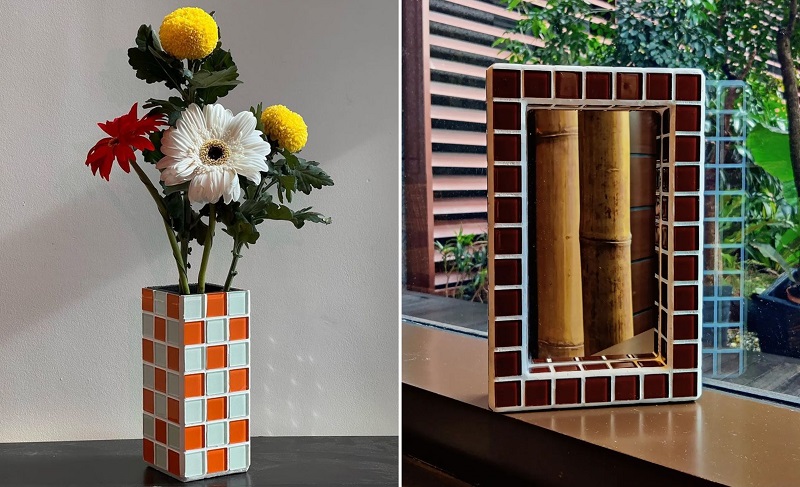
Some of the tiles date all the way back to the 1980s or 1990s (All photos: Moray)
Sisters Debby and Esther Loo were moving house and looking for an aesthetically pleasing coffee table for their new home.
“There were coffee tables in the market, but we couldn’t find one that met our needs — colourful, customisable and in any shape we wanted,” says Debby.
So, they decided to make their own coffee table by applying DIY tile stickers on a wooden foundation. “The result was quite nice. Our friends and cousins who came over said it looked good,” she says.
The siblings checked out image-based social media platform Pinterest and found tiled furniture being sold overseas, but could not find anything similar in Malaysia.
“Buying furniture from overseas can be costly and the delivery charges can go up to RM1,000. We thought, ‘Why not make it for ourselves and other people, so that everyone could have aesthetically pleasing furniture in their home?’
“We love having lively and colourful spaces as we believe these can influence the way we think and feel,” says Debby.
debby_left_and_esther.jpg

Last September, the pair launched Moray. It gets its name from the word “murray”, which has a Scottish Gaelic origin, meaning “from the sea”.
“Both of us love nature, adventure and travel. We started the business during one of the Movement Control Orders, when everyone was yearning to go out. The word felt right for us. It can also mean freedom — that is why our products come in so many colours and are customisable,” they say.
The basis of customised goods is that they are made according to individual needs and specifications. The sisters decided to create made-to-order products because several clients have small spaces, especially those living in Kuala Lumpur, they observe.
“Some customers say, ‘We want the right furniture for this area. I can’t find any cabinets that can fit here.’ So we try to make the customisable pieces available to everyone.”
The custom approach requires Moray to have quite a long lead time of three to eight weeks depending on the size. “Because we provide many types, colours and sizes of products, we cannot do mass production. With every order, we have to start the production process from scratch,” she says.
Each time they receive a new commission, they sketch out the product measurements and colours. “For the colour selection, we take photos of the tiles under different lighting since our phone screen may be different from that of our customers. When production begins, we cut and drill the wood ourselves. Then, we stick tiles on it before doing the lines. Next, we polish the product using our special mixture until light can be reflected on it,” says Debby.
moray.jpg

Moray uses ceramic tiles for large items and transparent glass tiles for smaller products. As tile options are limited locally, the sisters source the materials from countries like Indonesia and China. “These tiles go all the way back to the 1980s or 1990s. They were used to decorate kopitiams or cafés in Hong Kong and China. Nowadays, people prefer large marble, so no one really goes for the small types. That is why there is not much demand for these. We have to source them from everywhere,” she says.
Esther worked as a fashion designer and social media coordinator before pursuing this venture full-time. Coming from a creative background, she had many questions before starting Moray.
“She is more practical than I am as she has experience in the design industry. Meanwhile, I just want to make something I love,” says Debby, who was the first to suggest that they set up the business while waiting to graduate with a degree in traditional Chinese medicine.
The elder sister’s major concern was how to move the furniture from one place to another. Apart from coasters, vases, mirrors and computer desks, objects like tables and benches weigh about 20kg. To overcome the inevitable problem, they install wheels on heavy products.
moray_1.jpg

They also rely on courier service for delivery. But issues such as customers receiving broken packages made them more aware of depending entirely on such companies. Whenever they can, they transport the products to customers themselves.
“We have people asking why we are delivering them ourselves as our business is so busy already. But we don’t have a choice. Besides the Klang Valley, we have delivered to Perak, Penang and Johor,” says Esther.
Moray organised its first workshop, where participants were given a plain wooden monitor stand to decorate with colourful tiles, in March at Mahsa Avenue in Kuala Lumpur. The four-hour session guided attendees through the tile application process, and gave them the creative freedom to craft a piece that suits their home or work set-up. “After the event, they were amazed that the brand is run by just the two of us. Some even said that no one should ask for a discount from Moray,” says Debby.
Customers are often in awe when they see the end product. The duo are praised for their attention to detail and precision in making sure the tiles and lines are inch-perfect. Everything about the business is hard, “but it is something worth pursuing”.
Moving forward, the sisters wish to make more products that marry art and function so they can be easily accepted by everyone. “For example, if we make tiled mushroom-shaped furniture, people may think this is too new for them. We take into account the practicality of the objects we create because sometimes, when something is too aesthetically pleasing, you don’t know how to style it in your room,” adds Debby.
This article first appeared on July 18, 2022 in The Edge Malaysia.


